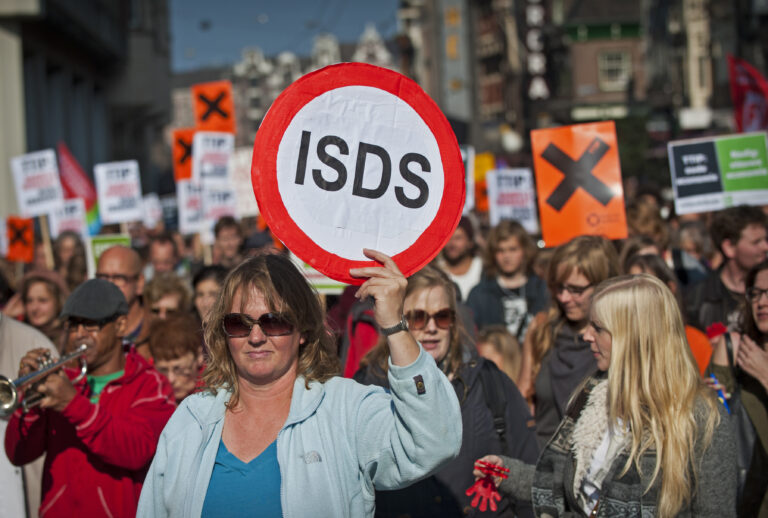
Same old, same old: the EU pushes ISDS 2.0
On 20 March, the European Council provided the European Commission with the requested mandate to start negotiations for a Multilateral Investment Court (MIC) to settle disputes between investors and states. The European Commission is of the opinion that this initiative responds to the call for reform of the controversial Investor-State Dispute Settlement mechanism (ISDS). But in fact, the MIC is no more than ISDS 2.0.
“The MIC fails to address the broad social objections to investment arbitration”, says Roeline Knottnerus (SOMO). “The European Commission will only be negotiating about the process of handling investment claims. With the aim to control legal costs and to enhance the predictability of the outcomes, in the interest of investors. The clauses that investors can invoke to bring their multi million dollar claims are not addressed.”
Promoting corporate rights…
According to SOMO, the MIC reinforces the one-sided nature of investment arbitration: it exclusively enables foreign investors to bypass the national legal system to launch an international claim for compensation. Public opinion and a growing number of countries (also within the EU), are challenging the legitimacy of this one-sided system. Developing and emerging economies in particular have experienced the substantial pressure that emanates from (a threat of) claims. The European Court of Justice recently determined that international investment arbitration is incompatible with European law.
“The MIC will continue to enable corporations to demand compensation(opens in new window) for public interest measures taken by governments, including better environmental protections or stricter social standards. The claims for ‘lost profits’ as a result of such measures can still run into many hundreds of millions, payable by the tax payer. In this way, the MIC does not eliminate the threat of claims as a tool for companies to exert undue pressure on (proposed) policies,” says Roeline Knottnerus.
…less active on binding corporate responsibilities
“The EU is not nearly as proactive when it comes to the obligations of companies,” says Bart-Jaap Verbeek (SOMO). “The EU remains reluctant to engage with the UN initiative to come to a Binding Treaty on Business and Human Rights. In doing so, the EU allows a situation to persist in which large internationally operating companies can all to easily avoid their responsibilities.”
“If a multilateral court is pursued, this should at least be opened up to all disputes surrounding foreign investments. So that international cases may also be brought against companies that engage in violations of human rights, basic social standards and pollution and destruction of the environment.”
Do you need more information?
-

Bart-Jaap Verbeek
Researcher
Related content
-
 ICAR and SOMO launch project ‘Challenging corporate capture within international trade and investment settlement mechanismsPosted in category:NewsSophia LinPublished on:
ICAR and SOMO launch project ‘Challenging corporate capture within international trade and investment settlement mechanismsPosted in category:NewsSophia LinPublished on: -

-

